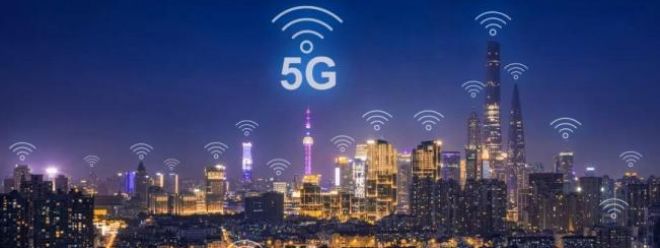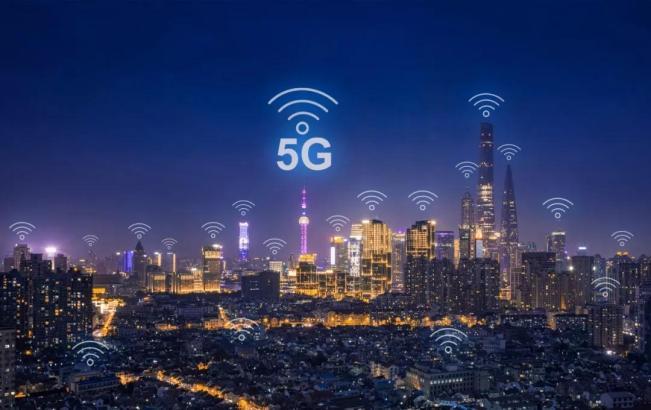Facing Huawei 5G, the United States is equivalent to a showdown

When it comes to 5G, the topic that cannot be avoided is
Huawei. Because of the advantages that Huawei has achieved in 5G technology, it
has become the world's company with the most 5G standards and essential
patents. It is also benefiting from the continuous acceleration of my country's
5G network construction and layout. Now it has become a global 5G The country
with the widest network coverage, the largest number of 5G base stations, and
the largest number of 5G users.
Originally, in the context of the “big cake” of the 5G
market, Huawei, relying on its core 5G technology, would receive more and more
foreign orders, and once surpassed Ericsson and Nokia in an absolute lead.
However, with the strong intervention of the United States, many suppliers that
have selected Huawei as their country's 5G construction have changed their
faces. The most noteworthy of these is the United Kingdom.

Over the past two decades, Huawei has maintained a very
close cooperative relationship with the United Kingdom. However, as the United
States struggled with it, the relationship between the United Kingdom and
Huawei has become more and more delicate. In July last year, the United Kingdom
suddenly changed its face, not only prohibiting local telecom operators from
purchasing Huawei 5G equipment, but also requiring that all Huawei equipment,
including 3G and 4G equipment, be removed from the British Telecom network by
2027.
What is even more unexpected is that local operators in the
UK have already begun to dismantle and replace the installed Huawei 5G
equipment with Nokia 5G equipment.
Even if Huawei has been in the UK for more than 20 years,
its communications equipment market share has reached more than 40%; even if
British telecom operators are opposed to the decision to exclude Huawei’s 5G
equipment; even if the UK completely dismantles Huawei’s equipment, it will
cost US$2 billion. It also delayed the deployment of 5G in the UK for at least
three years, and the UK’s decision to dismantle Huawei’s equipment does not
seem to waver at all.
If time goes back to January 2020, the British review of
Huawei equipment at that time concluded that the use of Huawei equipment and
technology is safe and controllable and will not affect the cooperation between
the United Kingdom and the United States. As a result, the United Kingdom
announced its decision to allow Huawei to participate in the country's 5G
network construction. But why did Britain suddenly change its face?
I believe everyone should know the reason. On the one hand,
the pressure from the United States may be too great; on the other hand, as an
ally of the "Five Eyes Alliance", the other four countries have
banned Huawei, and only the United Kingdom stays out of the matter. This may be
unrealistic.
In addition, in May 2020, the United States revised its new
chip regulations to prohibit TSMC and Samsung from supplying chips to Huawei.
In the future, whether Huawei will continue to supply 5G equipment without 5G
chips. Reasonable reasons for rejecting Huawei.
In fact, Huawei also regrets the British decision. Because
the United Kingdom is one of the important European economies, the decision to
dismantle Huawei's equipment is likely to become a resistance for Huawei to
continue to cultivate the European market and cause a "butterfly effect."
Sure enough, in the face of Huawei's 5G, after the United
Kingdom began to dismantle Huawei's equipment, the United States was also
equivalent to a showdown.
According to news from foreign media recently, the Federal
Communications Commission (FCC) officially announced that it will launch a
compensation project worth US$1.9 billion (approximately RMB 12.3 billion) to
provide funds to most rural telecom operators in the United States to help them
Remove installed Huawei and ZTE network equipment.
In fact, as early as last year, the United States had
stipulated that American operators were not allowed to purchase Huawei
equipment and made plans to dismantle Huawei equipment. It was just that the
cost of dismantling Huawei equipment was too great for American rural telecom
operators. The government’s promised subsidy of US$1.9 billion has been
delayed, so local rural operators in the United States have refused to
implement it.
Now, judging from the results announced by the Federal
Communications Commission, the US$1.9 billion subsidy seems to have been paid,
and rural telecom operators in the United States can officially dismantle
Huawei and ZTE equipment. This also means that in the face of Huawei 5G, the
United States is equivalent to a showdown. NS.
Although the United States has spent 1.9 billion US dollars
to dismantle Huawei's equipment out of its own pockets, it has been a complete
showdown, but it needs to be emphasized that this process still faces various
difficulties.
First of all, Huawei and ZTE equipment are loyal and old
customers in the hearts of rural telecom operators in the United States, and
they play an irreplaceable role. The data shows that Huawei’s market share of
network communication equipment in the United States has reached 45%, and the
amount of dismantling work can be imagined.
Secondly, foreign media said that even if the US$1.9 billion
subsidy has been paid in, it still faces many practical problems. For American
rural telecom operators, they are faced with many problems such as high costs
and difficulty in finding workers to remove and replace equipment.
Finally, due to well-known reasons, the United States has
not been financially ample in recent years, and the domestic situation has
become a mess. It doesn’t matter if you don’t save money everywhere. Instead,
it has spent 1.9 billion US dollars in such anxious dismantling of Huawei. ZTE
equipment suppresses Chinese companies. For the United States, this is really
thankless and hard to understand.
But then again, since the United States has had a showdown
and is determined to do so, all the consequences can only be borne by the
United States and American companies. In contrast to Huawei, Ren Zhengfei has
already transferred its R&D center and investment in the United States.
Therefore, compared with the showdown in the United States, Huawei may suffer
less damage.